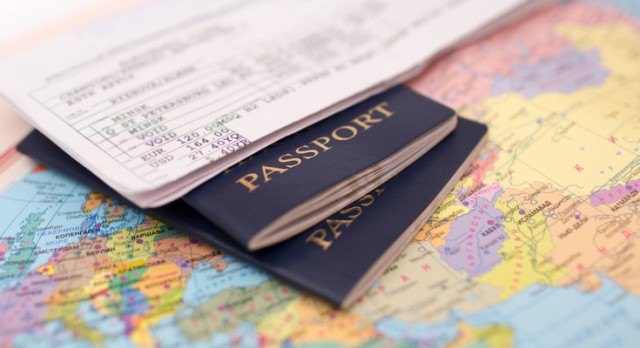Following the end of colonialism, Africa experienced a significant cultural, political, and economic shift. The cultural environment of the continent was profoundly impacted by colonization, which frequently suppressed local customs and promoted Western values. However, Africa saw a cultural renaissance in the later part of the 20th and early 21st centuries, marked by the emergence of native artistic movements, the enactment of cultural laws, the ascent of famous people, and a significant influence on society.
One of the defining features of Africa’s cultural renaissance has been the emergence of indigenous artistic movements that celebrate the continent’s rich heritage and diversity. Across various mediums such as visual arts, literature, music, and film, African artists have been reclaiming their narratives and challenging stereotypes imposed by colonial powers.
In visual arts, the rise of movements like Afropolitanism and Afrofuturism has gained international acclaim for their bold and innovative expressions of African identity. Artists like El Anatsui, Wangechi Mutu, and Kehinde Wiley have garnered attention for their groundbreaking works that explore themes of history, identity, and globalization through a distinctly African lens.
Similarly, in literature, authors like Chimamanda Ngozi Adichie, Ngũgĩ wa Thiong’o, and Chinua Achebe have been at the forefront of Africa’s literary renaissance, producing works that challenge Western narratives and celebrate African culture and traditions. Through novels, essays, and poetry, these writers have captured the complexities of post-colonial African society while highlighting the resilience and creativity of its people.
In music, genres like Afrobeat, Highlife, and Afrobeats have experienced a global resurgence, with artists Burna Boy, Davido, Tems, Diamond Platinumz and many more leading the charge. By blending traditional African rhythms with contemporary sounds, these musicians have created an exclusive and dynamic musical landscape that reflects the diversity and vitality of the continent.
In movies, the African cinema movement has gained momentum, with filmmakers like Ousmane Sembène, and Haile Gerima, and Nollywood pioneers like Tunde Kelani and Kunle Afolayan challenging Western-dominated narratives and showcasing African stories on the global stage. Through their films, these directors have explored themes of colonialism, identity, and social justice, offering nuanced perspectives on the African experience.
Central to Africa’s cultural renaissance has been the implementation of cultural policies aimed at fostering creativity, preserving heritage, and promoting cultural exchange. In the wake of independence, many African governments recognized the importance of cultural development as a means of nation-building and social cohesion. One notable example is the formation of cultural institutions like the National Museum of African Art in Senegal, the National Arts Council of Zimbabwe, and the National Gallery of Modern Art in Nigeria, which have played a vital role in promoting Indigenous art and preserving cultural heritage.
Also, initiatives like the African Union’s Cultural Charter for Africa and UNESCO’s Convention for the Safeguarding of the Intangible Cultural Heritage have provided frameworks for protecting and promoting African culture on both regional and global scales. These policies have helped to elevate the status of African art and culture, ensuring its recognition and preservation for future generations.
Furthermore, investment in cultural infrastructure, such as theaters, galleries, and cultural centers, has provided platforms for artists to showcase their work and engage with audiences. Government-funded programs and grants have also supported the development of artistic talent, enabling aspiring artists to pursue their passions and contribute to Africa’s cultural renaissance.
Throughout Africa’s cultural renaissance, numerous figures have emerged as champions of African culture, using their platforms to amplify African voices and promote cultural exchange. From artists and activists to scholars and politicians, these individuals have played a pivotal role in shaping the narrative of post-colonial Africa and challenging stereotypes about the continent and its people. One such figure is Nobel laureate Wole Soyinka, whose contributions to literature and activism have made him a towering figure in African culture. Through his plays, essays, and poetry, Soyinka has explored themes of power, corruption, and social justice, while advocating for freedom of expression and human rights.
The cultural renaissance in post-colonial Africa has had a profound impact on society, shaping identity, empowering communities, and fostering a sense of pride and belonging among Africans. By reclaiming their narratives and celebrating their heritage, Africans have been able to assert their agency and challenge stereotypes imposed by colonial powers.
Through art, literature, music, and film, Africans have been able to explore and express their unique experiences and perspectives, fostering a greater sense of understanding and empathy both within the continent and beyond. Moreover, the cultural renaissance has provided opportunities for economic empowerment and social mobility, particularly for marginalized communities.
By investing in cultural infrastructure and supporting artistic talent, African governments have been able to harness the power of culture as a driver of development and social cohesion. Cultural tourism has emerged as a significant source of revenue for many African countries, providing opportunities for job creation and economic growth while showcasing the richness and diversity of African heritage.
Furthermore, initiatives like the African Union’s Agenda 2063 and the United Nations’ Sustainable Development Goals have recognized the importance of culture in achieving sustainable development and promoting social inclusion. By prioritizing investments in cultural development, African governments are not only preserving their heritage but also laying the groundwork for a more prosperous and equitable future for all.


